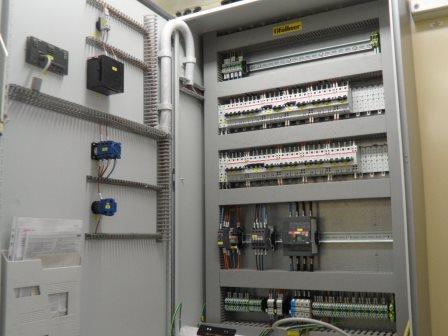Watch our Most Recent Videos | Visit us on LinkedIn | Visit us on YouTube
Inspection and Test Plan for Switchgear
The inspection and test plan for switchgear article provides you information about switchgear test and switchgear inspection in manufacturing shop. The draft Inspection and test plan provided as well. Download from above link.

You may need to review this sheet in conjunction of Third Party Inspection for Switchgear article.
The IEC, NEC, NEMA, FDF, ISO ANSI, CI, IPCEA standard requirements normally are applied for inspection and test plan in manufacturing shop.
The witness of some inspection and test by third party inspector is mandatory and cannot be waived. These points in the inspection and test plan for switchgear are hold points and can not be waived.
Some others must only monitored and fully witnessing are not necessary, for these thing, the inspection man-days etc. depends to the purchaser decision, some prefer stringent monitoring and even assign resident inspector in manufacturing shop and some others relay to quality control system of the manufacture and assign only few days for monitoring points.
These are some of inspection points which need to be witnessed, monitored and reviewed by third party inspector in Switchgear manufacture shop.
Inspection and Test Plan for Switchgear - Important Points
- Witnessing the High voltage tests
- Witnessing the Electric tests on secondary wiring.
- Witnessing the Insulation resistance tests
- Witnessing the Sequence testing of relays.
- Witnessing the Operation for circuit breakers and check for interchangeability
- Checking all busbars and busbar connections for tightness, clearance in air/oil compound (before filling), rating, and color marking of phases.
- Where busbar chambers are oil or compound filled, check welding of tank joints leakage.
- Checking current transforms and voltage transformers for records of Vendor`s individual tests, correct phasing and polarity, correct ration and VA on CT labels and voltage transformers correctly connected, fuses of links are fitted, and phases are correct.
- Checking protective relays, instruments, contractors, switches, fuses etc.
- Checking wiring, generally for correct grade and size of wire, terminations for tightness, earthing arrangements for continuity in circuit and general standard, checking on concealed runs for possible damage to installation.
- Checking incoming and outgoing cable boxes and glands.
- Checking all shutters and interlock operation.
- Checking all circuit breakers for fit up and fitting ease of operation.
- Checking complete boards for finish, lines out of units where applicable, range and setting of meters and relays, correct fitting of doors, circuit labels and dimensions to GA Drawing
Free newsletter!
Sign up to receive my monthly newsletter covering all the latest courses and updates.




New! Comments
Have your say about what you just read! Leave me a comment in the box below.